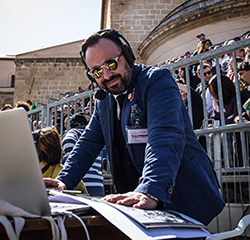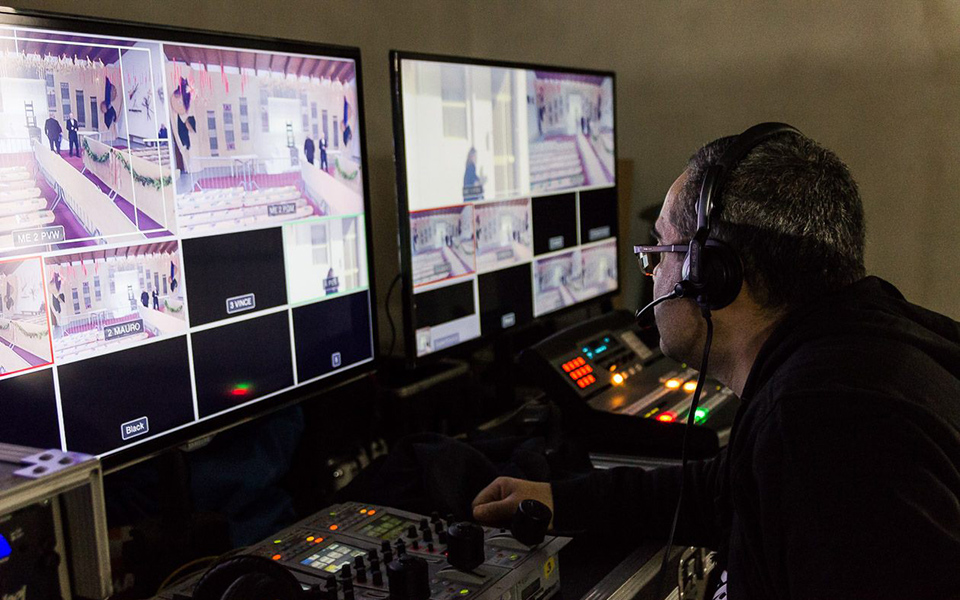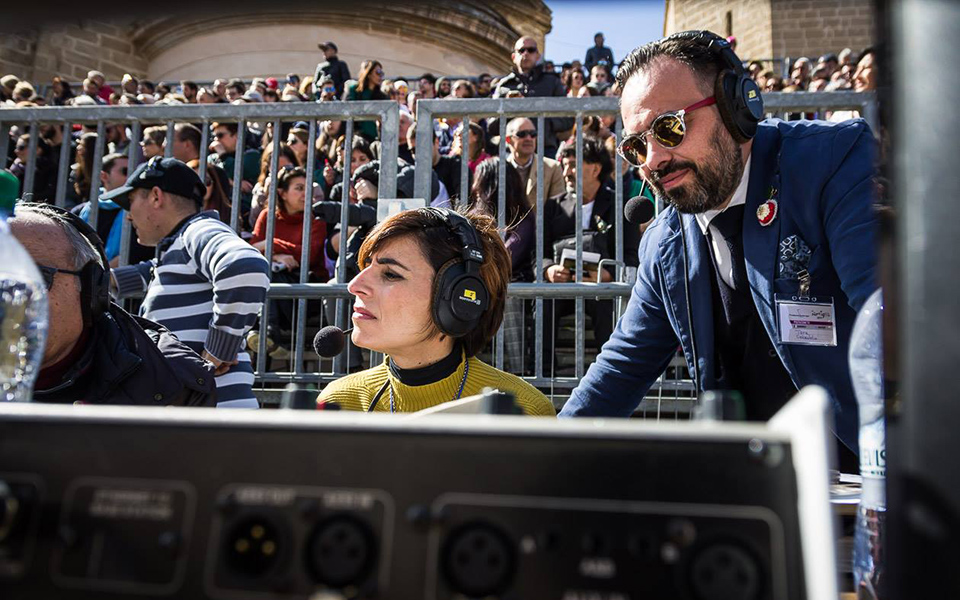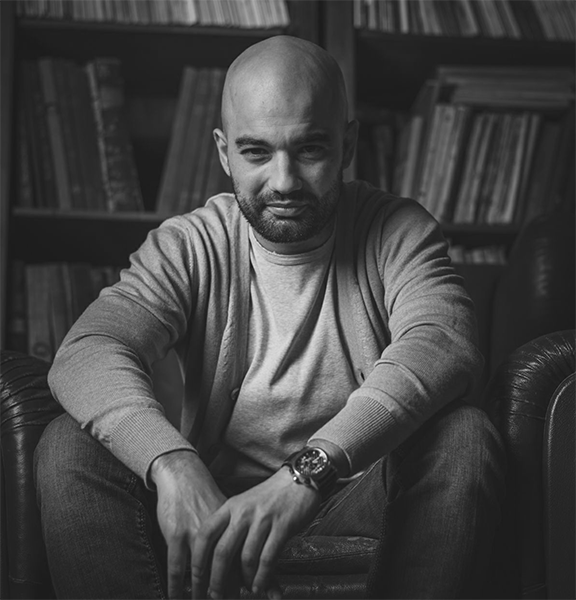
Eja TV
A web TV, the first on the island, born to protect the linguistic rights of Sardinia. In a time of frenzied and global communication, Eja TV slows down, dedicates itself to the cultural depths of its land, to minority cultures
It is sufficient to open the EjaTV website, and watch the digital channel to appreciate its diversity, the harmony of its off-key notes. Sardinia, historically shy in choosing its own identity, confused by the exoticism of foreign discourse, finds its most authentic voice, becomes a spontaneous and collective narrative. Language is the house of being, you just need to listen.
“EjaTV was born as a millennial channel, inspired by the possibilities that have opened up with the birth of social networks, capable of triggering circuits of experiences previously unthinkable. Throughout the years it has changed its nature several times, but always keeping its mission clear: we aim at bringing together a shared but dispersed feeling, we want to create an authentic social ecosystem that knows how to accompany Sardinia into the new millennium. This is why we do not go after the news, but we prefer to focus on culture, working hard on the insights”, says Tore Cubeddu, director, writer and editor of the first true Sardinian television.

Places, faces, stories and linguistic variants (Sardinian, Algherese, Gallurese and Tabarchino) build a genuine image of the island, both when contemporary themes are dealt with, as when the story traces the thread of the most ancient traditions. On the road travelling, the story of traditional jobs and avant-garde businesses, programs dedicated to children, language, art, migrants: "I am Palestinian and Sardinian. I am half African, from Senegal, and half Italian. I am half Italian and half Roma, because we were born in Italy. From Ukraine, I was born here but my parents were born in Ukraine. I feel Italian. I feel Sardinian” it can be heard from the kaleidoscope of voices in the documentary “Sena Làcanas”, “without borders”. As if the present, and the future, were a light music that few still know how to listen, to give back in images, and dance. Men and women, the elderly and the youth move around in the ancient beauty of villages, they are farmers, shepherds, fishermen in the lagoon, migrants who come from the sea, young people who fly over it and then return where the deep identity slowly breathes.
“We collaborate with the Cagliari Football Club, with all literary festivals and many other cultural initiatives. But also with anyone who is at the margins of communication”, explains Cubeddu, who concludes: “We have always given a lot of space to environmental issues. We want actively participate in building a future where Sardinians have rediscovered and consolidated the identity relationship that binds them to the natural heritage preserved on the island. The partnership with MEDSEA wants to seal this purpose, the desire to belong to a common path”.

Contacts

Eja TV
A web TV, the first on the island, born to protect the linguistic rights of Sardinia. In a time of frenzied and global communication, Eja TV slows down, dedicates itself to the cultural depths of its land, to minority cultures
It is sufficient to open the EjaTV website, and watch the digital channel to appreciate its diversity, the harmony of its off-key notes. Sardinia, historically shy in choosing its own identity, confused by the exoticism of foreign discourse, finds its most authentic voice, becomes a spontaneous and collective narrative. Language is the house of being, you just need to listen.
“EjaTV was born as a millennial channel, inspired by the possibilities that have opened up with the birth of social networks, capable of triggering circuits of experiences previously unthinkable. Throughout the years it has changed its nature several times, but always keeping its mission clear: we aim at bringing together a shared but dispersed feeling, we want to create an authentic social ecosystem that knows how to accompany Sardinia into the new millennium. This is why we do not go after the news, but we prefer to focus on culture, working hard on the insights”, says Tore Cubeddu, director, writer and editor of the first true Sardinian television.

Places, faces, stories and linguistic variants (Sardinian, Algherese, Gallurese and Tabarchino) build a genuine image of the island, both when contemporary themes are dealt with, as when the story traces the thread of the most ancient traditions. On the road travelling, the story of traditional jobs and avant-garde businesses, programs dedicated to children, language, art, migrants: "I am Palestinian and Sardinian. I am half African, from Senegal, and half Italian. I am half Italian and half Roma, because we were born in Italy. From Ukraine, I was born here but my parents were born in Ukraine. I feel Italian. I feel Sardinian” it can be heard from the kaleidoscope of voices in the documentary “Sena Làcanas”, “without borders”. As if the present, and the future, were a light music that few still know how to listen, to give back in images, and dance. Men and women, the elderly and the youth move around in the ancient beauty of villages, they are farmers, shepherds, fishermen in the lagoon, migrants who come from the sea, young people who fly over it and then return where the deep identity slowly breathes.
“We collaborate with the Cagliari Football Club, with all literary festivals and many other cultural initiatives. But also with anyone who is at the margins of communication”, explains Cubeddu, who concludes: “We have always given a lot of space to environmental issues. We want actively participate in building a future where Sardinians have rediscovered and consolidated the identity relationship that binds them to the natural heritage preserved on the island. The partnership with MEDSEA wants to seal this purpose, the desire to belong to a common path”.

Contacts
Our voice from the territory

Legal head office: c/o Studio Associato Conti-Via Piemonte, 33-09127 Cagliari (Italy) - Headquarter: Via Nazario Sauro 1, 09123 Cagliari (Italy)
(+39) 070 0950439 | info@medseafoundation.org | medsea@pec.medseafoundation.org
Photos ©: Andrea Alvito, Maurizio Naletto
MEDSEA Logo designed by Stefano Asili
